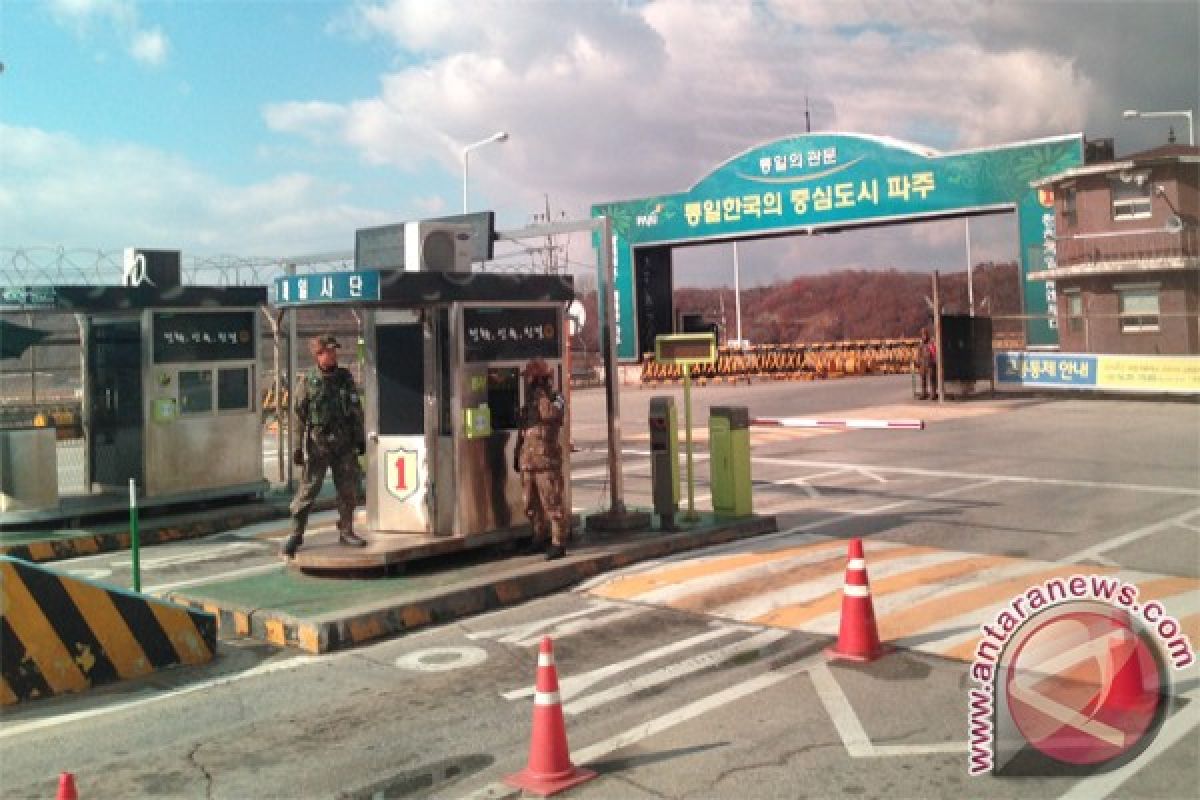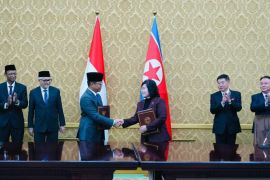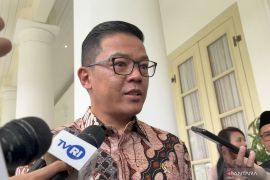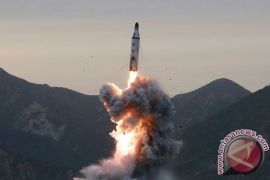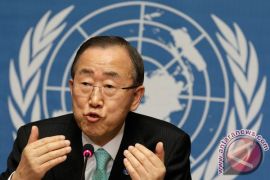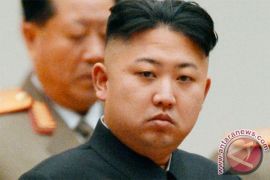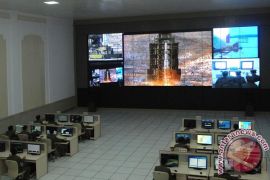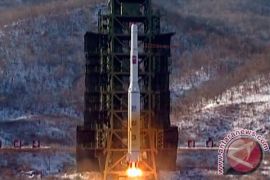It`s as if we`re just being ordered to jump off a cliff to our deaths."Paju, South Korea (ANTARA News) - South Korean companies readied Thursday to pull out of a jointly run industrial zone in North Korea after Seoul shut it down to punish Kim Jong-Uns regime for its recent nuclear test and rocket launch.
Hundreds of vehicles, including scores of empty flat-bed trucks, began queueing before dawn at the border to cross to the Kaesong complex and begin bringing out staff and equipment, AFP reported.
Wednesdays announcement to close Kaesong took many by surprise, given that South Korea had always allowed the industrial park, which lies 10 kilometres (six miles) over the border, to remain open despite serious provocations in the past.
Defending what it called an "unavoidable" decision, Seoul said North Korea had been using the hundreds of millions of dollars in hard-currency cash that it earned from Kaesong to fund its nuclear weapons and ballistic missile programmes.
At a time when the international community is struggling to agree on how to punish the North for last months nuclear test and Sundays long-range rocket launch, "there is a need for Korea... to show leadership", the government said in a statement.
For the owners of the 124 South Korean companies operating factories in the estate, the move would appear to sound the death knell for what had become an increasingly vulnerable project in recent years, as both sides sought to leverage its symbolic and economic importance.
While discussion of Kaesong has often focused on its financial importance to the cash-strapped North, it has also been a lucrative concern for many of the companies involved.
As well as cheap, Korean-language labour, they received preferential loans and tax breaks from the South Korean government, which effectively underwrote their investment.
An association representing the owners slammed the shutdown order as "utterly incomprehensible" and complained they had not been given enough advance warning to sort out their affairs.
"Its as if were just being ordered to jump off a cliff to our deaths," said association head Jeong Gi-Seob.
Seoul has called on Pyongyang to ensure the "safe return of our citizens" amid concerns that the North Korean authorities might refuse to let everyone leave.
In September 2014, Pyongyang had drafted a new operational regulation -- rejected by Seoul -- that would have allowed the North to detain South Korean businessmen in Kaesong in the event of an unresolved business dispute.
There has so far been no official reaction from Pyongyang to the shutdown.
Assistant Secretary of State Daniel Russel said Seouls announcement was a "compelling indicator of the seriousness with which they regard the provocative steps" taken by North Korea.
"More steps are needed to convince the (North Korean) leadership that it is not going to be possible to have access to the international economic system let alone economic or financial aid as long as North Korea continues to pursue nuclear and missile programmes," Russel said.
The US Senate voted unanimously Wednesday to tighten the economic screws on North Korea, adopting measures that would slap sanctions on any person or entity who imports goods, technology or training related to weapons of mass destruction, or engages in human rights abuses.
Japan also unveiled fresh unilateral sanctions, including prohibiting North Korean ships from entering Japanese ports and a total entry ban on North Korean nationals into Japan.
Born out of the "sunshine" reconciliation policy of the late 1990s, Kaesong opened in 2004 and proved remarkably resilient, riding out repeated crises that ended every other facet of inter-Korean cooperation.
Even in 2010, when the South accused the North of sinking one of its warships and imposed punitive sanctions, the Kaesong factories remained open.
The only exception was in 2013 during a period of heightened cross-border tensions when Pyongyang effectively shut down the zone for five months by withdrawing its 53,000 workers.
Editor: Priyambodo RH
Copyright © ANTARA 2016
